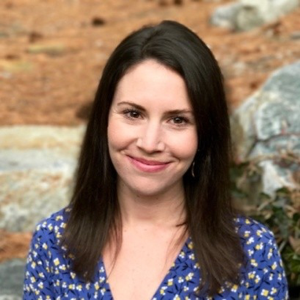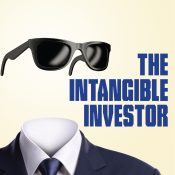IPWatchdog is happy to host “Understanding IP Matters,” a podcast presented by the Center for Intellectual Property Understanding that explores the IP story of people who have succeeded in the world of inventions, creative expression, and brands—some with the scars to prove it.
A curiosity of the intellectual property field is the lack of emphasis on commercialization. While there are numerous resources that describe how to patent an invention, there are hardly any that offer processes and frameworks for transforming ideas into products and services. This is a disservice to creative people, because they are motivated to share their creativity with the world — not merely protect what they invent.
In a new episode of the podcast “Understanding IP Matters,” the fascinating serial entrepreneur Tiffany Norwood laments that while “so much of our world is driven by imagination, only a few of us take our imagination seriously. Even fewer still know how to take that imagination and bring it into reality to the extent that others can use it, benefit from it, or be entertained by it.”
Norwood is one of those few who do. During the 40 years she’s been practicing entrepreneurship, she’s commercialized a wide range of ideas, including seven startups and three exits. Her ventures include a one-strap backpack, satellite radio, self-install technology for broadband internet and digital phone, a healthcare clinic in Ethiopia that’s treated over 12,000 patients, an Edtech company, and a virtual reality eSports company. In the 1990s, she was instrumental in raising enough money to fund the launch of three satellites into space, ushering in the era of XM Radio. Last fall, she sold the gaming company and included acquiring non-fungible tokens (NFTs) as part of the deal.
Telling Your Story
Norwood knows exactly what is required to bring game-changing ideas to life, because she’s done just that, repeatedly. Today, she believes the ability to make what we imagine real will become the skillset of success in the future; not only for individuals, but also communities and countries. That’s why she’s made it her mission to help people become literate in creativity and innovation, which she acknowledges is anything but easy.
One of the core competencies that aspiring innovators must master? Persuasive storytelling.
“As an innovator, you’re literally trying to get people to see new realities, and the first way you do that is with narrative and with story,” she explains.
She goes on to reveal the exact pitch she used to raise nearly $700 million to bring global satellite radio into existence as a 27-year-old. In just over 100 words, she paints a vision of a world that is more connected, honest, and human-centered. It’s a brilliant example of appealing to emotion in the most direct, broad, and accessible way possible.
Knowing how to frame the story of an invention so that others are motivated to join in and offer their support is crucial for anyone wanting to do something new. Entrepreneurs understand this innately. In fact, it’s one of the qualities that sets them apart from the typical inventor. The reality is that good ideas — even great ideas — don’t sell themselves. They must be packaged and presented carefully, with great intention, because people need to be sold. They need to be made to believe. The grander the idea, the greater the need to bring others along with you.
A Bias Toward Action
Fundamentally, Norwood attributes her success starting and growing so many different ventures to three mindsets: Unity, trust, and a bias towards action. If she could, she’d help her younger self out by coaching her to take more risks.
“Regret is a more bitter pill to swallow than failure. I don’t even believe in failure anymore, because it sounds so permanent. Whereas to me, it’s like, you fall down, you get up.”
The best way to harness the full potential of inventors is by teaching them how to minimize the fallout from the risks inherent along the path from idea to product. So, when they fall down, in other words, they are easily able to get back up — and try again with their next great idea.
Norwood explains: “Intellectual property matters, because it’s saying, ‘Hey, we’re giving credibility and value to your imagination — and if you help us change the world, one product at a time, one move forward in medicine or science or education, we will let you also reap some of the reward for that.,”
Listen to Tiffany and “Understanding IP Matters” host Bruce Berman discuss how intellectual property benefits people who want to change the world; what’s required to raise a huge amount of capital for an ambitious goal; her favorite inventors; why NFTs are misnamed; the messiness of entrepreneurship; her diverse passions as a polymath, and much more.
Understanding IP Matters is a production of the Center for Intellectual Property Understanding, a nonprofit whose focus is demystifying IP.
About Tiffany Norwood: As a 27-year-old in the 1990s, Tiffany Norwood did something no other entrepreneur has done since. She raised over $670 million to fund a startup, WorldSpace, now a part of Sirius XM. The capital was used to help launch three satellites into space, enabling the world to talk to itself, individual to individual. As one of the first successful Black female tech entrepreneurs, Norwood’s career has spanned 52 countries, 30 years, and seven startups. She filed her first patent application as a teenager.
In between startups, Norwood has had a career in sales and trading from Morgan Stanley in New York, and Citi Corp in London. She holds an MBA from Harvard and a BS from Cornell in economics, with a concentration in statistics and engineering.
Between assignments, she created a healthcare clinic in Ethiopia that has served more than 12,000 patients. She’s also an accomplished painter and musician. Ms. Norwood is the founder and CEO of Tribetan, an Edtech company focused on teaching entrepreneurship and innovation.
As the host of the new podcast “Understanding IP Matters: From Creator to Entrepreneur,” Bruce Berman interviews successful entrepreneurs about how they’ve used intellectual property to bring their ideas for innovative products and services to life.

![[IPWatchdog Logo]](https://ipwatchdog.com/wp-content/themes/IPWatchdog%20-%202023/assets/images/temp/logo-small@2x.png)

![[Advertisement]](https://ipwatchdog.com/wp-content/uploads/2024/04/Patent-Litigation-Masters-2024-sidebar-early-bird-ends-Apr-21-last-chance-700x500-1.jpg)

![[Advertisement]](https://ipwatchdog.com/wp-content/uploads/2021/12/WEBINAR-336-x-280-px.png)
![[Advertisement]](https://ipwatchdog.com/wp-content/uploads/2021/12/2021-Patent-Practice-on-Demand-recorded-Feb-2021-336-x-280.jpg)
![[Advertisement]](https://ipwatchdog.com/wp-content/uploads/2021/12/Ad-4-The-Invent-Patent-System™.png)







Join the Discussion
No comments yet.